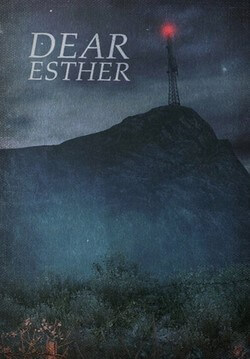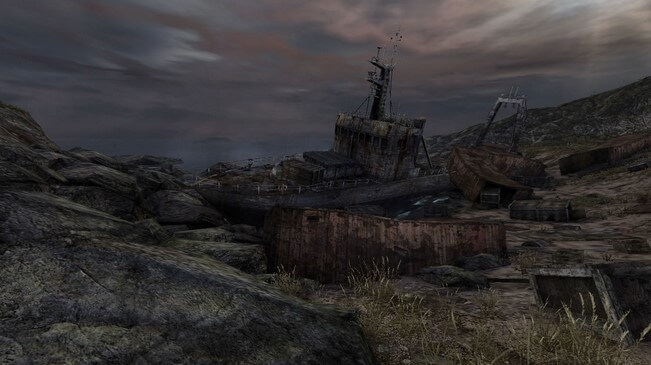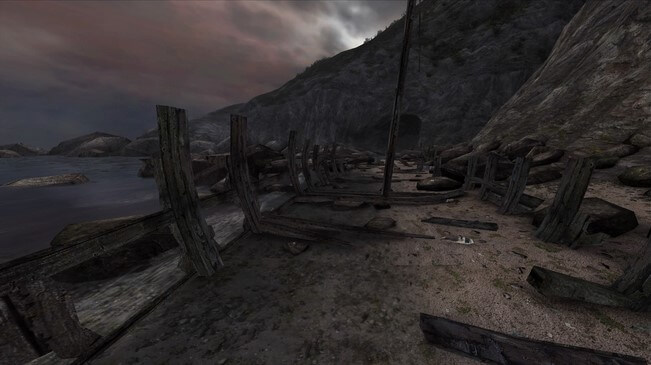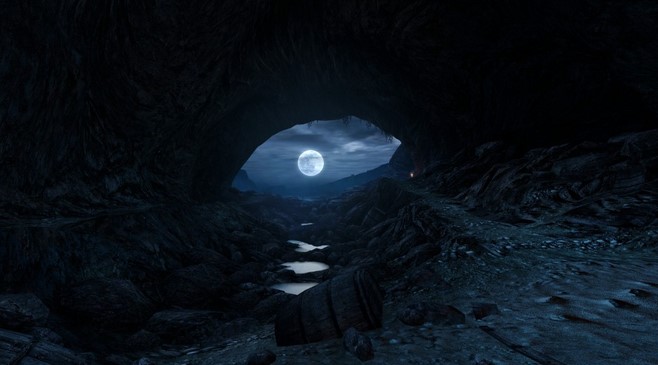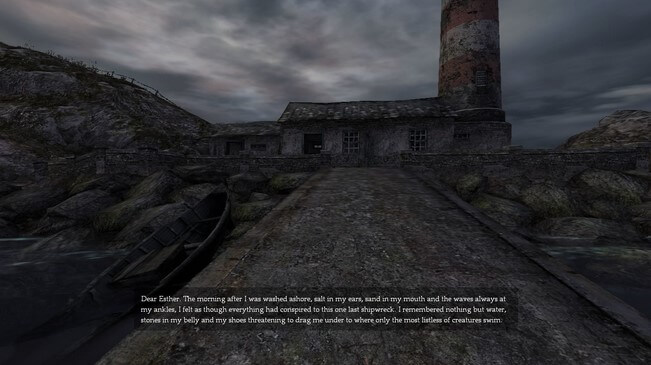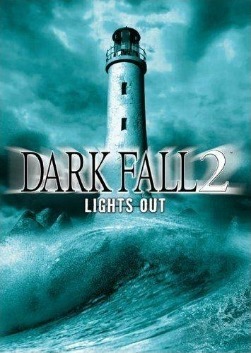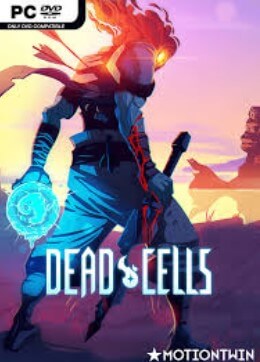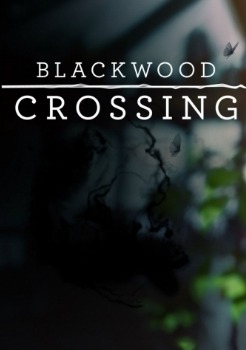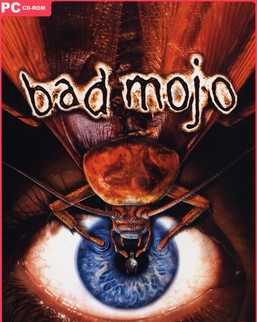Dear Esther is a first-person exploration and adventure video game developed by The Chinese Room for Microsoft Windows, Mac OS X, PlayStation 4 and Xbox One. First released in 2008 as a free-to-play modification for the Source game engine, the game was entirely redeveloped for a commercial release in 2012. Featuring minimalistic gameplay, the player's only objective in the game is to explore an unnamed island in the Hebrides, listening to a troubled man read a series of letters to his deceased wife. Details of her mysterious death are revealed as the player moves throughout the island.
The Chinese Room released a spiritual successor to Dear Esther, titled Everybody's Gone to the Rapture, in 2015.
Gameplay and plot
The gameplay in Dear Esther is minimal, with the only task being to explore an uninhabited Hebridean island, listening to an anonymous man read a series of letter fragments to his deceased wife, Esther. As the player reaches new locations on the island, the game plays a new letter fragment relating to that area. Different audio fragments are revealed in each playthrough of the game, presenting a slightly different narrative each time. Several other characters are referred to by the narrator: a man named Donnelly, who charted the island in the past; Paul, who is suggested to be the drunk driver in the accident in which Esther died; and a shepherd named Jakobson who lived on the island in the 18th century. As the player explores the island, they find the derelict remains of buildings, a shipwreck, and a cave system whose walls are adorned with images resembling chemical diagrams, circuit diagrams, neurons and bacteria. At various points a figure is seen walking away from the player in the distance, but disappears before they can be reached. As the game progresses, the identities of the characters become more blurred and the player is made to draw their own conclusions of the story.
Development
The original rendition of Dear Esther was one of several modifications of the Source Engine developed by The Chinese Room while the studio was still a research project at the University of Portsmouth. The project was funded by a grant from the Arts and Humanities Research Council and led by Dan Pinchbeck, a professor and lecturer at the university. The story and script were composed by Pinchbeck, who cited the works of William S. Burroughs as influential in the writing: "... looking at the way William Burroughs worked structurally was a big influence, but also I was really interested in moving towards a quite image-heavy, symbolic, poetic use of language rather than the normal descriptive tone we find in games."
Independent games artist Robert Briscoe began work on completely redeveloping Dear Esther in 2009, with the full support of Pinchbeck. Briscoe and The Chinese Room worked in parallel on the game's remake, with much of the level design completed solely by Briscoe based on concept art done by Ben Andrews. In redesigning the island's landscape, Briscoe aimed to eliminate the confusion caused by the original game's lay-out, and to fill out the environment with "richer, visually interesting" features to improve on the barren landscape of the original mod. In March 2011, while the game was still in development, The Chinese Room lost the financial backing of the University it had theretofore relied on. The studio had needed the University to pay for the Source Engine license needed for a commercial release of the game, but the University's legal department was dissatisfied with the license agreement and refused to sign it. The Chinese Room turned to the Indie Fund for finances, who were hesitant at first but after playing a demo, agreed to fund the project. The Fund's Ron Carmel stated "As soon as people started playing it, the tone of the conversation just completely shifted, and people were very much in favor of supporting this project". Within six hours of the remastered release on Steam, over 16,000 units had been sold, allowing the developers to pay back the full Indie Fund investment.
The voice of Dear Esther's narrator was performed by Nigel Carrington, whose script was extended for the remake. The game's music was composed by Pinchbeck's wife, Jessica Curry, a freelance music composer and co-director of The Chinese Room. In the remake's development, Curry overhauled and re-orchestrated the score to be fuller and longer, featuring more instruments and reaching nearly double the length of the original soundtrack. The music of the original game was released for free on 8 July 2008, shortly after the mod itself was released, and the remastered soundtrack was released on 14 February 2012, via Amazon.com, iTunes, and Bandcamp.
